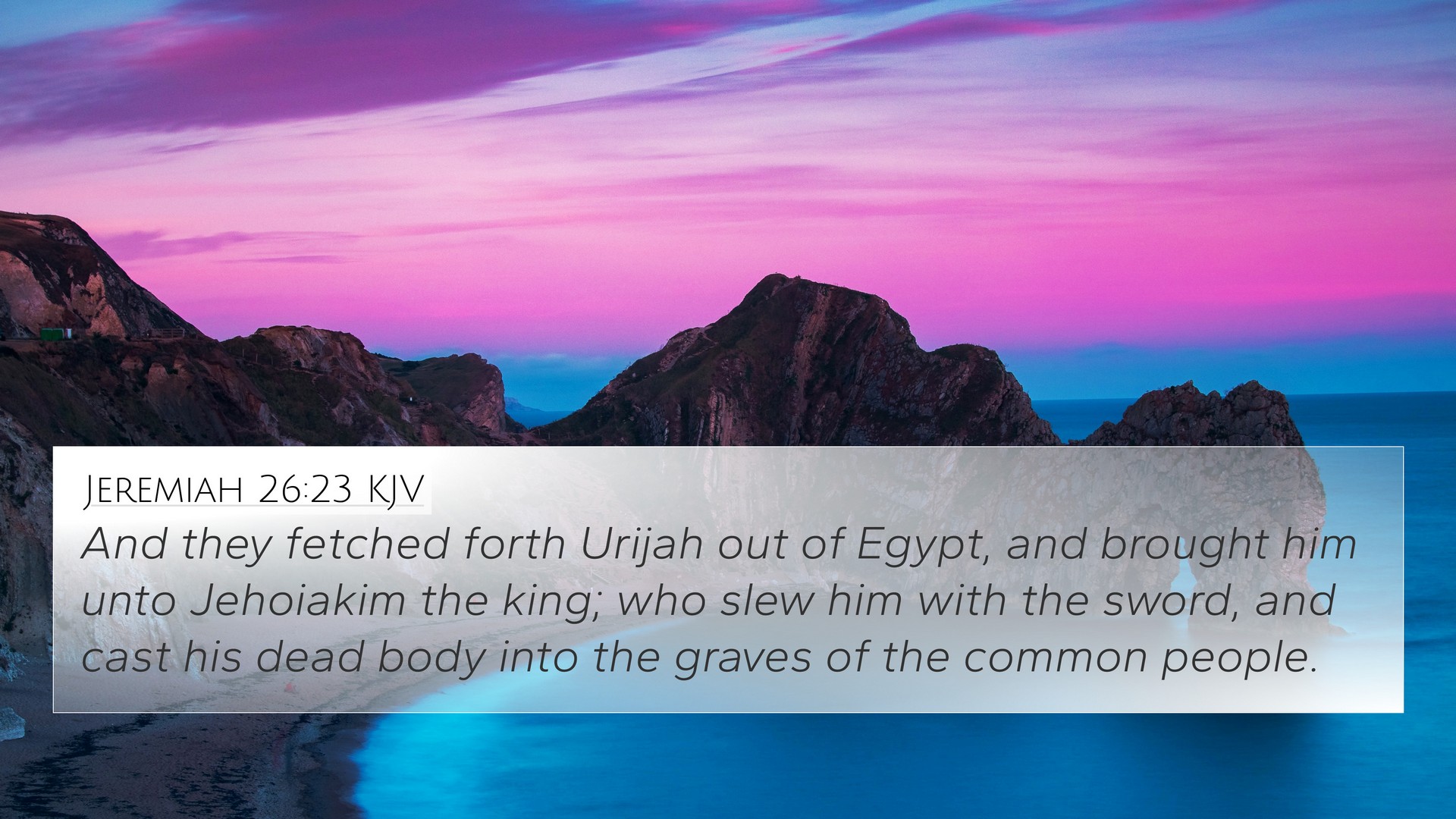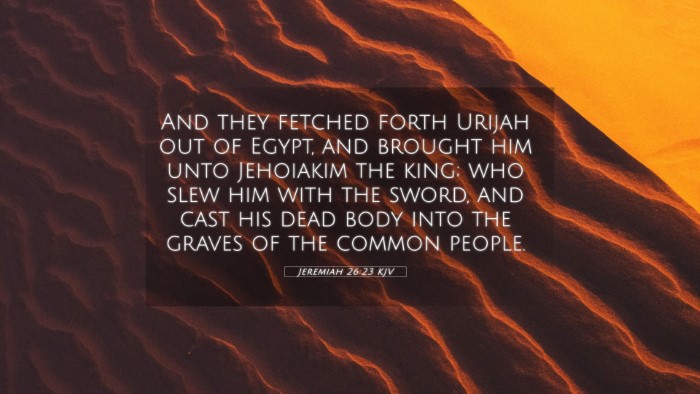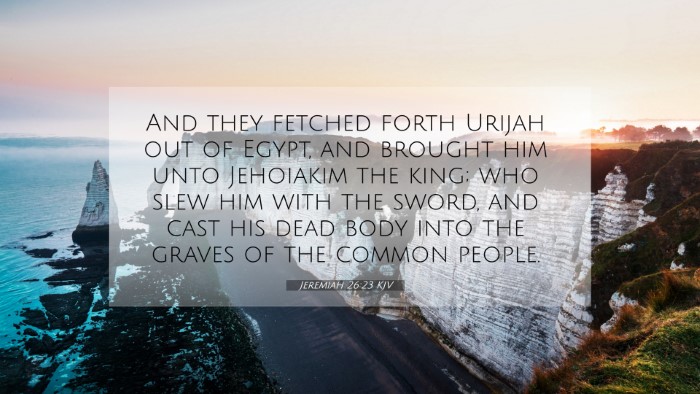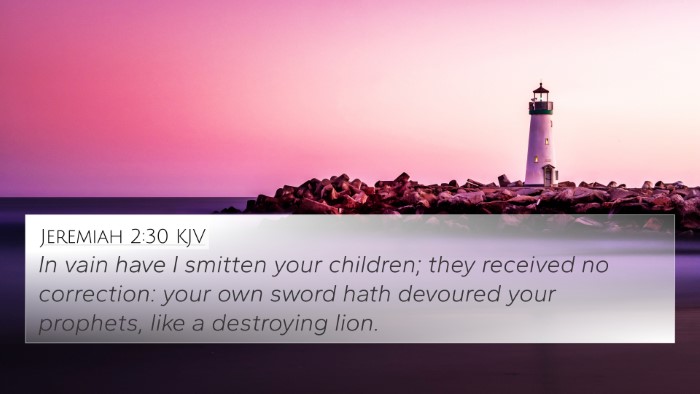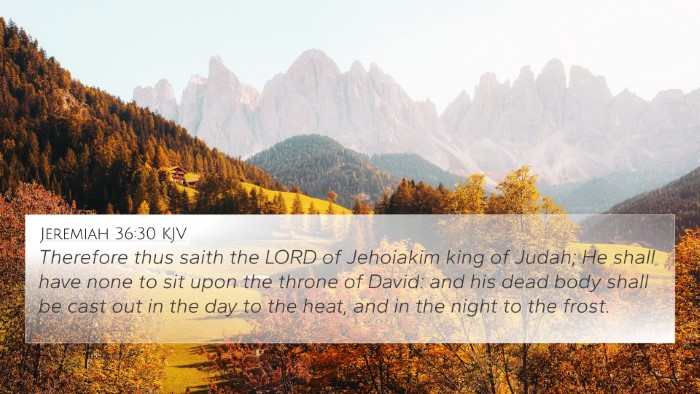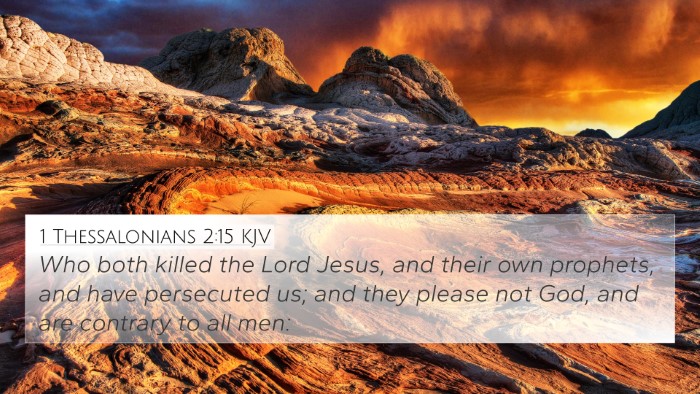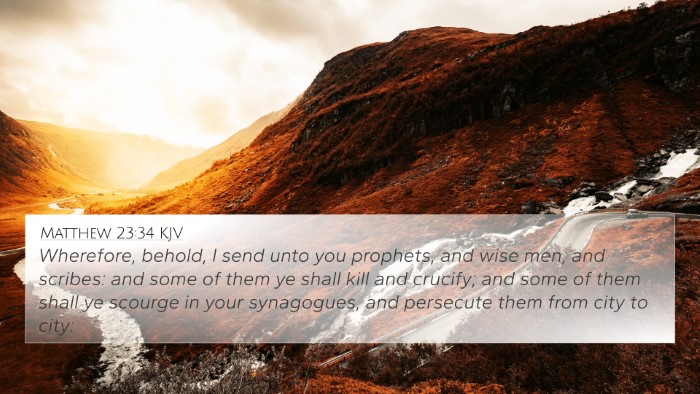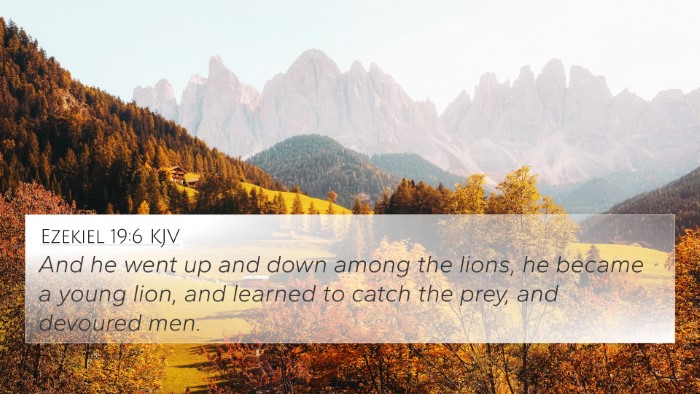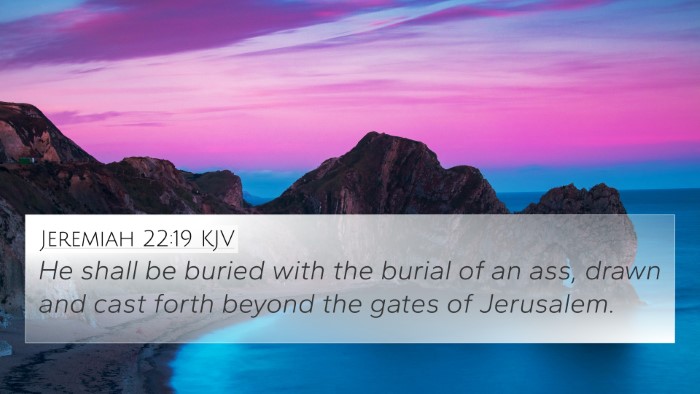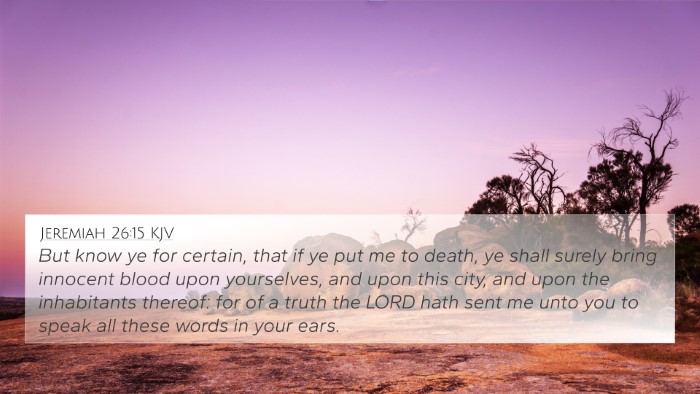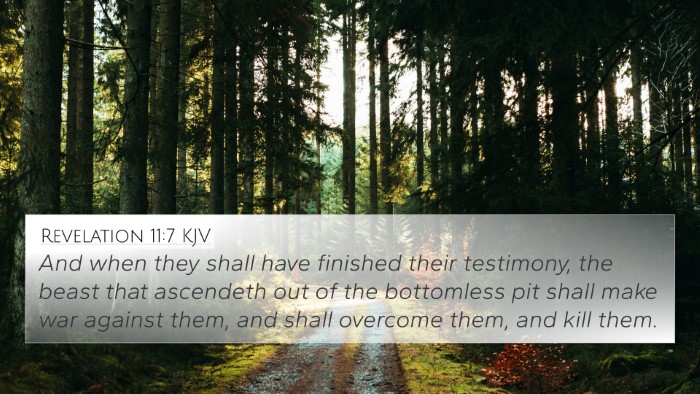Understanding Jeremiah 26:23
Jeremiah 26:23 states:
"And they fetched forth Urijah out of Egypt, and brought him unto King Jehoiakim; who slew him with the sword, and cast his dead body into the graves of the common people."
Context and Significance
This verse is part of a narrative in the Book of Jeremiah that depicts the persecution of prophets and the consequences they faced for delivering God’s message. Urijah, who prophesied against Jerusalem, became a victim of the reigning king’s hostility towards divine messages.
Commentary Insights
Several public domain commentaries offer valuable insights into Jeremiah 26:23:
Matthew Henry's Commentary
According to Matthew Henry, this verse illustrates the peril that true prophets face in a world dominated by tyranny and apostasy. Urijah’s story is a cautionary tale that highlights the risks of standing firm in one’s faith, particularly in times when the leadership is against God's will. Henry emphasizes that the blood of the prophets often becomes the seeds of faith in the community, signifying that their suffering was not in vain.
Albert Barnes' Notes on the Bible
Albert Barnes elaborates on the consequences of Urijah’s prophecy against Jerusalem. He points out that Urijah was treated with great cruelty, and his death symbolizes the rejection of God's message by those in power. Barnes notes that the act of slaying a prophet reflects a deep-seated hostility against truth and moral accountability, which was prevalent during the time of King Jehoiakim. He encourages readers to recognize the importance of standing firm in the truth, regardless of personal cost.
Adam Clarke’s Commentary
Adam Clarke provides a historical perspective on the actions taken against Urijah. He relates this event to other similar instances of persecution faced by prophets in the Old Testament. Clarke insists that these narratives should serve as lessons for believers in contemporary society, highlighting the enduring nature of God’s message despite opposition. He also emphasizes the mercy of God that offers hope to those who, like Urijah, face suffering for their faith.
Bible Cross-References
Understanding Jeremiah 26:23 can be enhanced by examining related biblical passages. Here are several potential cross-references:
- Jeremiah 20:1-2 - The imprisonment and punishment of Jeremiah by Pashur.
- Matthew 23:37 - Jesus lamenting over Jerusalem and acknowledging the city's history of killing prophets.
- 2 Chronicles 24:21 - The death of Zechariah, who was killed for his prophecy.
- Acts 7:52 - Stephen’s speech, highlighting the killing of prophets throughout Israel's history.
- Luke 11:49-51 - Jesus indicating that God will send prophets whom people will persecute.
- Hebrews 11:36-38 - The faith of those who suffered persecution and the recognition of such actions in God's eyes.
- 1 Peter 4:12-14 - Encouragement for believers facing trials and persecution for their faith.
Thematic Connections
Examining the themes within Jeremiah 26:23 further reveals connections across the scriptures:
- Persecution of the Righteous: This theme echoes throughout the Bible, notably in the lives of prophets like Elijah (1 Kings 19:10) and Jesus (Matthew 5:12).
- Rejection of God’s Word: The refusal to heed the prophets directly connects to warnings in Isaiah 30:10 and Ezekiel 2:3-5.
- Political Oppression vs. Divine Calling: The tension between God’s message and worldly authority appears in both Jeremiah and the Book of Daniel (Daniel 3:16-18).
Practical Applications
As we reflect on Jeremiah 26:23, several practical applications emerge for modern readers:
- Remain steadfast in faith despite opposition.
- Understand the history of prophetic calling and the cost associated with it.
- Practice discernment when evaluating the messages from leaders or authorities.
Conclusion
Jeremiah 26:23 serves as a stark reminder of the trials faced by those who proclaim God's truth. The insights from various commentaries deepen our understanding, reminding us of the cost of faithfulness and encouraging us to draw connections across scripture. By examining related passages, we appreciate the continuity of God’s message throughout the Bible and the enduring relevance of prophetic voices.
